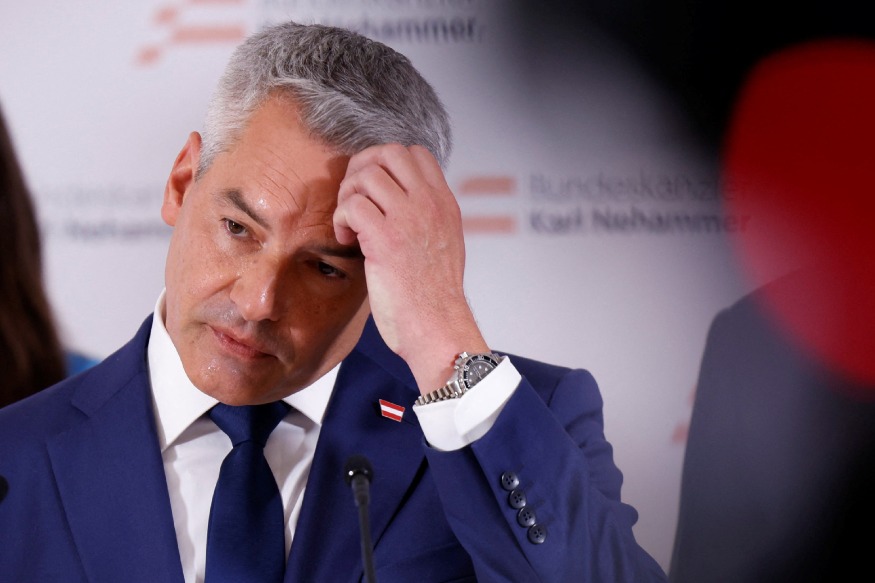Envoy refutes NATO accusations

China's top envoy to the United Nations on Thursday refuted NATO's "unwarranted attacks and accusations" against China in a recent communique issued during the NATO Summit in Vilnius, Lithuania.
"The Cold War has long since ended, but the 'ghost' of the Cold War mentality has been hovering over the world," said Zhang Jun, China's permanent representative to the UN. He said the Cold War mentality "intensified global confrontation and conflicts".
Zhang made the remarks at a UN Security Council on Thursday in response to a communique released at the end of the NATO Summit on Tuesday, in which the military bloc mentioned China 15 times, saying that "China's stated ambitions and coercive policies challenge our interests, security and values" and that China posed "systemic challenges" to the alliance, Xinhua News reported.
"The communique issued at the meeting is filled with repeated and lengthy statements, rehashing old tunes, full of Cold War mentality and ideological bias. The communique ignores basic facts and makes unwarranted attacks and accusations against China. It is completely backward and hypocritical," said Zhang. "China strongly opposes it.
"NATO claims to be a regional organization, why then is NATO reaching beyond its geographical scope laid down in its treaty, making its foray into the Asia-Pacific, bringing more negative impacts and destructive factors to regional and global security?" Zhang asked.
"NATO claims to be a defensive alliance, why then is NATO encouraging member states to ramp up military budgets, keep crossing the line and expanding the mandate, and stoke confrontations," Zhang asked.
"NATO claims to defend a 'rules-based international order', but it has been ignoring international law and basic norms governing international relations and interfering in other countries' internal affairs," Zhang continued.
Zhang emphasized that NATO's accusations against China are groundless. "China is a force for world peace, a contributor to global development, and a defender of the international order," he said.
"China has the best record on peace and security. We have never invaded any country or engaged in any proxy war. We have never conducted global military operations, threatened other countries with force, exported ideology or interfered in other countries' internal affairs," Zhang said.
He said China follows a policy of 'no first use' of nuclear weapons at any time and has committed unconditionally to not using or threatening to use nuclear weapons against non-nuclear weapon states and nuclear-weapon-free zones. China is the only nuclear weapon state to have adopted such a policy.
"Would any NATO member states make such a commitment?" Zhang asked.
"We will resolutely fight back against any behavior that violates China's sovereignty and territorial integrity, damages China's security and development interests, and disrupts the peace and stability of China's surrounding areas," the envoy said.
At Thursday's Security Council meeting on non-proliferation of the Democratic People's Republic of Korea, Zhang also called for the denuclearization of the peninsula, the maintenance of peace and stability in the region, and the pursuit of a political settlement through dialogue.
The Korean Peninsula issue is a legacy of the Cold War that has cast a decades-long shadow, said Zhang. "It is essentially a political security issue, and the core lies in the lack of a peace mechanism."
The United States and other countries have long viewed the DPRK as a security threat and have been fixated on imposing sanctions and pressure, which has placed immense security threats and survival pressure on the DPRK, Zhang said, adding that "this approach will only intensify contradictions and heighten tension, and reality has already demonstrated".
"Dialogue and negotiation are the only correct and effective way to ease the tension on the peninsula and promote a political settlement," he said. "As long as the US and the DPRK resume dialogue and negotiations, the situation on the peninsula will remain stable, and there will be hope for a political settlement.
"Instead of accusing other countries of obstructing the Security Council's actions, the US should propose practical solutions, take meaningful actions, respond to the legitimate concerns of the DPRK, and implement the statement of 'unconditional dialogue' with actions," said Zhang.
He said the Security Council should also make active efforts to ease sanctions in due course, rather than "simply imposing sanctions and pressure", and it should not be "reduced to a tool for individual countries to achieve self-interest in geopolitics".
































